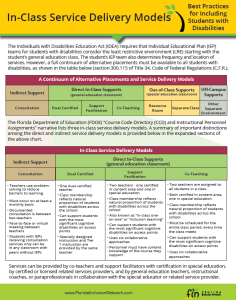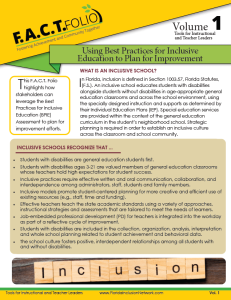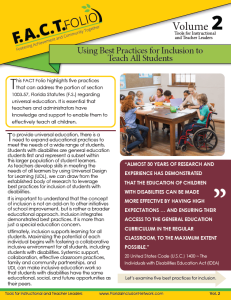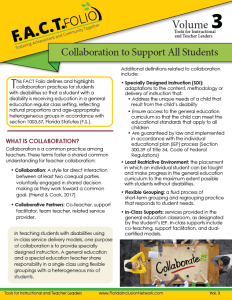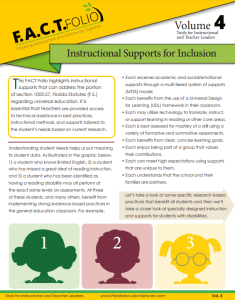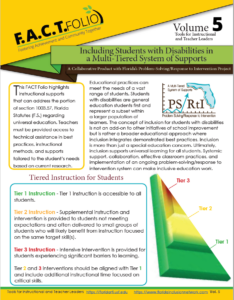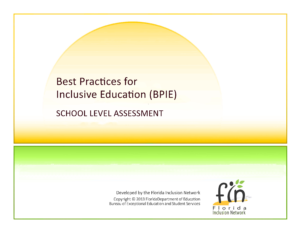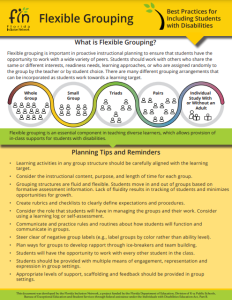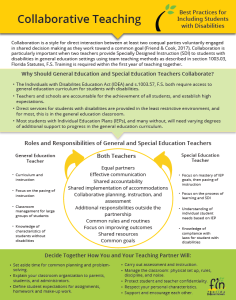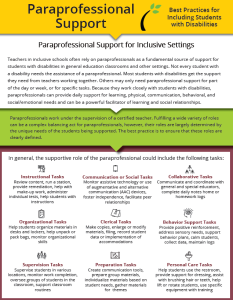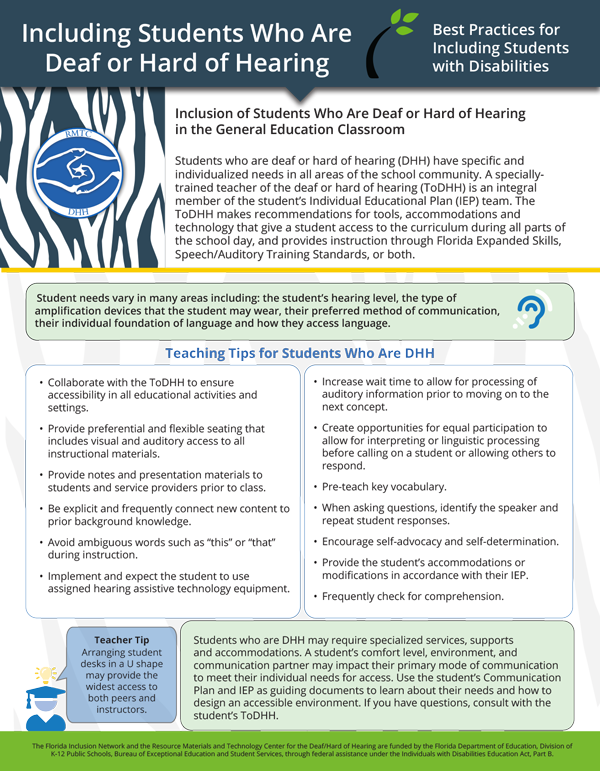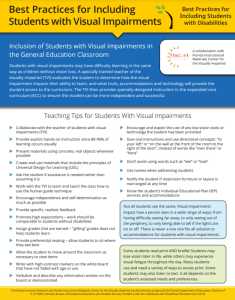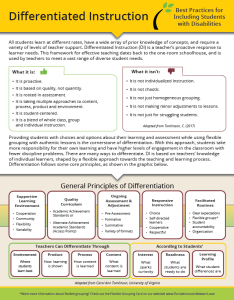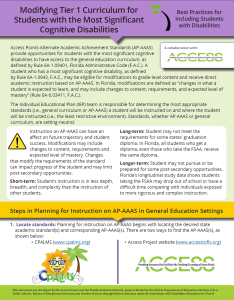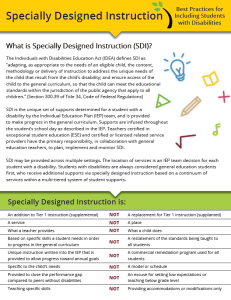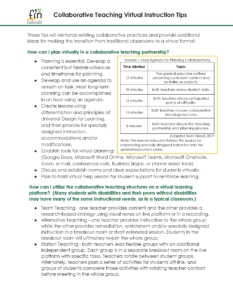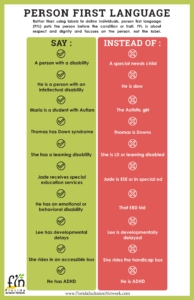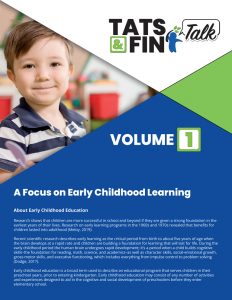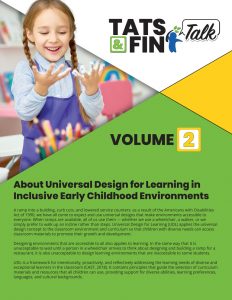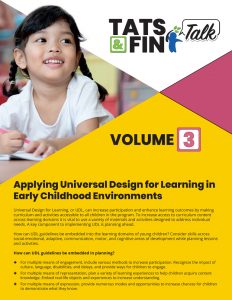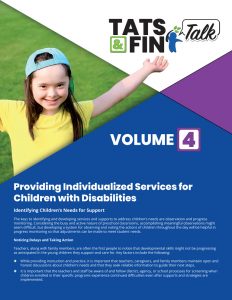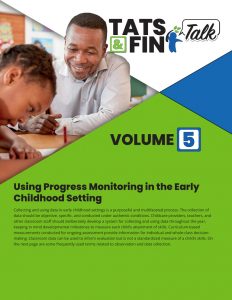Please note this webpage has content that may not be fully accessible.
If you need assistance with content please contact us.
FIN facilitates the implementation of best practices for inclusive education for districts and schools. These are the type of services our network can provide to increase positive outcomes for students with disabilities.
Districts
FIN Facilitators can provide these customized services and supports below to districts, but not limited to the following:
- District needs assessment: District-level Best Practices for Inclusive Education (BPIE) assessment aligned to DBPIE Assessment Priority Indicator, surveys, interviews, checklists,
- District-based planning and problem-solving
- Professional development
- Repeated classroom visits/observation/feedback
- Ongoing, specific PD, technical assistance (TA) and follow-up to district teams
- Data collection, data analysis, evaluation, and progress monitoring for district-level teams
- Building capacity sessions for cadres in effective inclusive practices (e.g., facilitating and supporting school-level BPIE assessment)
- Co-training/co-facilitation with cadre members
- Facilitate teams/cadres with implementation of district-level collaborative learning structures: professional learning communities, webinars, online learning courses,
- Provision of research-based resources and related materials
- Coordination of site visits to model schools
- Multi-project collaboration to provide district support
- Support for family involvement to increase LRE and student achievement
- Data collection, evaluation and progress monitoring resources and tools
- Peers as Partners in Learning development and coaching for district personnel
District Resources
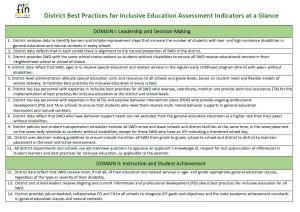
District BPIE Indicators At-a-Glance
A list of the 30 BPIE Indicators only.
Schools
FIN Facilitators can provide these customized services and supports below to schools, but not limited to the following:
- School and classroom needs assessment: School–level Best Practices for Inclusive Education (BPIE) assessment and/or classroom walkthroughs
- Ongoing school-level planning, and problem-solving in collaboration with district teams, school leadership teams, grade level teams, content area teams, individual teachers, and other special projects.
- Site-based, job-embedded professional development
- Classroom visits, feedback and follow-up
- Identify and implement progress monitoring and evaluation methods and strategies aligned with core and intensive instruction
- Site-based planning
- PD for school-based leadership (e.g., Principal’s Academy)
- Peers as Partners in Learning development and coaching for school personnel

Instructional Resources
Additional Resources
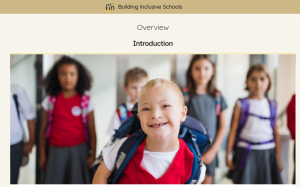
Building Inclusive Schools > PDF
Building Inclusive Schools (BIS) is a 10-hour independent study course that provides information to assist district and school administrators, teachers, and other stakeholders in creating and supporting an inclusive school culture for all students. Units lead participants through a brief viewing of disability history, establishing a vision and processes for an inclusive school culture, focusing on the components of universal education, and implementing specially designed instruction and individual supports so that all students with disabilities exit school as college, career, and life ready.
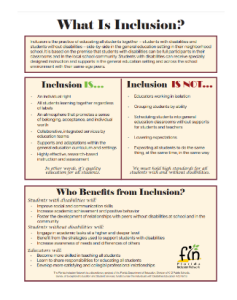
An overview of the foundations of inclusion, with essential concepts and frameworks needed to promote an inclusive school culture.
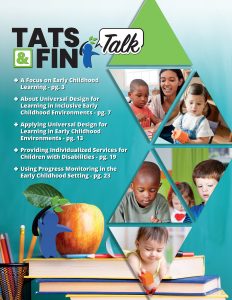
TATs and FIN Talk magazine > PDF
The Technical Assistance and Training System (TATS) and Florida Inclusion Network (FIN) five-part magazine focuses on inclusive education for children in early childhood settings.

